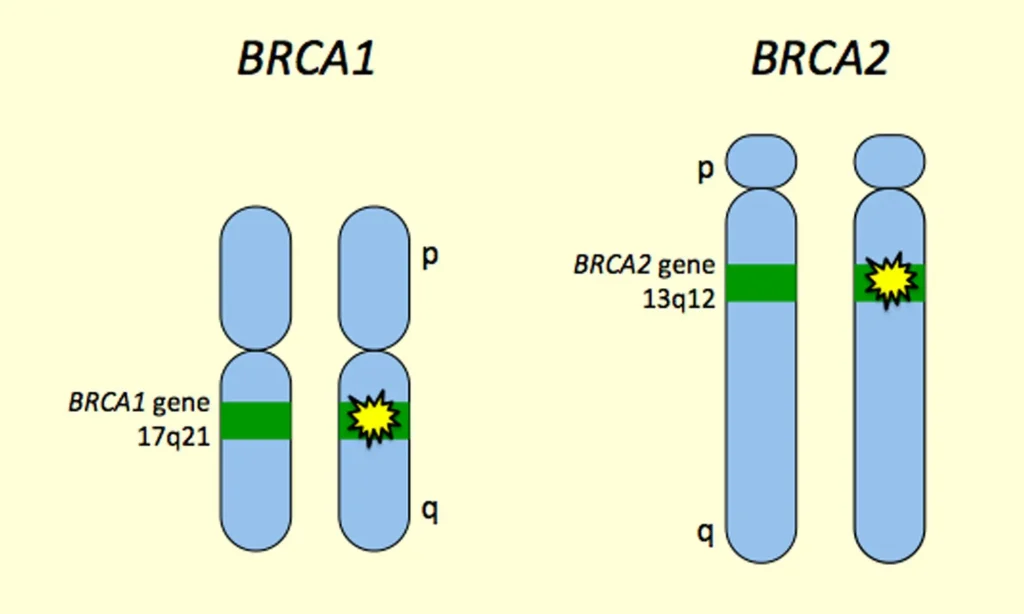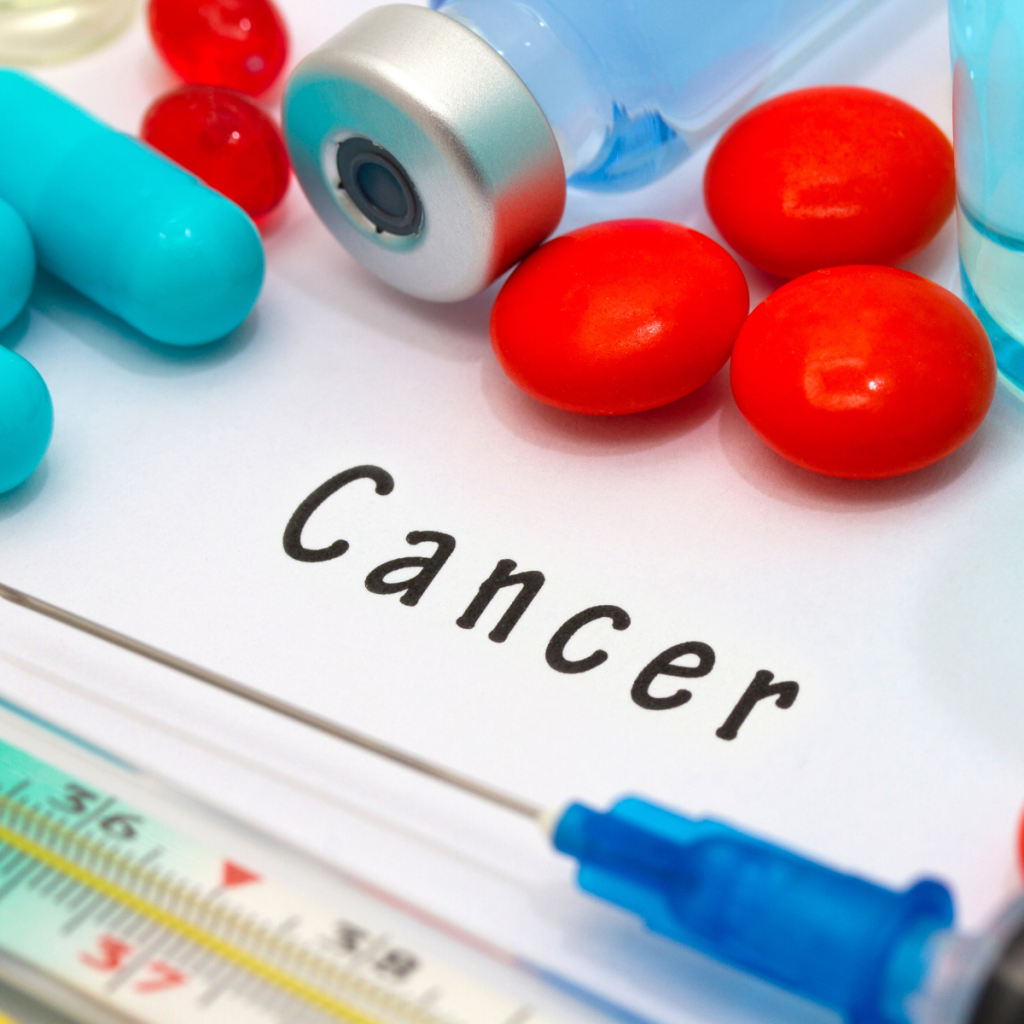When it comes to understanding cancer risk, one of the most important factors to consider is genetics. While lifestyle choices such as diet, exercise, and smoking play a significant role, our genetic makeup also contributes to whether we develop certain types of cancer. However, genetics alone doesn’t determine our fate. In fact, cancer is often the result of a complex interplay between inherited genetic mutations and environmental factors. In this article, we will explore the role of genetics in cancer risk, how inherited mutations affect the likelihood of developing cancer, and what you can do to reduce your risk, even if you have a genetic predisposition.
What Is Genetic Cancer Risk?
Genetic cancer risk refers to the likelihood of developing cancer based on the genetic mutations you inherit from your parents. Every individual has a unique genetic code that influences how their cells grow, divide, and repair. In some cases, changes (mutations) in specific genes can increase the risk of certain types of cancer. These mutations can be inherited from one or both parents, which is why family history is often a significant factor in cancer risk. In other cases, genetic mutations can occur due to environmental factors such as smoking, diet, or exposure to certain chemicals.

It’s essential to understand that having a genetic mutation linked to cancer doesn’t necessarily mean you will develop cancer. Many people with these mutations never develop cancer, while others without any known genetic risk may still be diagnosed with the disease.
Inherited Genetic Mutations and Cancer
Certain genetic mutations are directly associated with an increased risk of cancer. These mutations are typically inherited from one or both parents and can significantly affect an individual’s susceptibility to various cancers. The most well-known genetic mutations linked to cancer include:
1. BRCA1 and BRCA2 Mutations

BRCA1 and BRCA2 are genes responsible for producing proteins that help repair damaged DNA. Mutations in these genes increase the risk of breast, ovarian, and prostate cancer. Women with a BRCA1 or BRCA2 mutation have a higher risk of developing breast and ovarian cancer, while men with these mutations may have an increased risk of prostate cancer. These mutations can be passed down from either the mother or the father, which means both men and women can inherit them.
2. Lynch Syndrome
Lynch syndrome, also known as hereditary non-polyposis colorectal cancer (HNPCC), is another genetic condition that increases the risk of several cancers, particularly colorectal cancer. Individuals with Lynch syndrome have a higher risk of developing cancers in the colon, endometrium (uterus), ovaries, and other organs. This syndrome is caused by inherited mutations in genes responsible for DNA repair, including MLH1, MSH2, MSH6, and PMS2.
3. P53 Gene Mutations (Li-Fraumeni Syndrome)
Li-Fraumeni syndrome is a rare genetic condition caused by mutations in the TP53 gene, which is responsible for regulating cell growth and preventing abnormal cell division. Individuals with Li-Fraumeni syndrome have an increased risk of developing various types of cancer, including breast cancer, sarcomas, brain tumors, and leukemia. People with this syndrome are more likely to develop cancer at an earlier age.
4. Other Genetic Conditions
There are several other genetic conditions and mutations that can increase cancer risk. For example, mutations in the APC gene can lead to familial adenomatous polyposis, a condition that greatly increases the risk of colorectal cancer. Additionally, mutations in the CDH1 gene can cause hereditary diffuse gastric cancer, while mutations in the STK11 gene can lead to Peutz-Jeghers syndrome, which increases the risk of breast, colon, and pancreatic cancers.
Genetic Testing: Should You Get Tested?
Genetic testing can help identify mutations in your DNA that may increase your risk of developing certain cancers. This test involves analyzing a sample of your blood, saliva, or tissue to look for changes in specific genes. Genetic testing is particularly recommended if you have a strong family history of cancer, especially if your family members developed cancer at an early age or had multiple types of cancer.

Some of the main benefits of genetic testing include:
- Identifying Cancer Risk: Genetic testing can help identify inherited mutations that increase the risk of cancer, which allows individuals to take preventive measures, such as more frequent screenings or lifestyle changes.
- Early Detection: For individuals with genetic mutations, early detection of cancer through regular screenings can significantly improve treatment outcomes and survival rates.
- Personalized Prevention Plans: Genetic testing allows healthcare providers to create personalized prevention and treatment plans, including early screenings, lifestyle adjustments, or medications that may lower cancer risk.
However, it’s important to note that genetic testing is not always necessary for everyone. The decision to undergo genetic testing should be made in consultation with a genetic counselor or healthcare provider who can assess your family history and individual risk factors.
The Role of Environmental and Lifestyle Factors
While genetic mutations can increase cancer risk, they are not the only factor at play. Environmental and lifestyle choices can also significantly influence whether an individual develops cancer. In fact, studies suggest that environmental and lifestyle factors may contribute to about 70-90% of all cancer cases, while genetics account for the rest.
Some of the key environmental and lifestyle factors that can influence cancer risk include:
- Tobacco Use: Smoking is the leading cause of lung cancer and has been linked to cancers of the mouth, throat, pancreas, bladder, and more. Even secondhand smoke can increase the risk of cancer in nonsmokers.
- Diet and Obesity: A poor diet high in processed foods and red meats, as well as being overweight or obese, can increase the risk of several types of cancer, including breast, colon, and liver cancers. On the other hand, a balanced diet rich in fruits, vegetables, and whole grains can reduce the risk.
- Physical Activity: Regular exercise has been shown to reduce the risk of several cancers, including colon, breast, and endometrial cancer.
- Sun Exposure: Excessive exposure to ultraviolet (UV) radiation from the sun or tanning beds increases the risk of skin cancer, including melanoma. Wearing sunscreen and protective clothing can help reduce this risk.
- Exposure to Carcinogens: Occupational and environmental exposure to chemicals such as asbestos, pesticides, and industrial solvents can increase the risk of cancer.
By maintaining a healthy lifestyle, individuals can reduce their cancer risk, even if they have an inherited genetic mutation.
What You Can Do to Reduce Your Cancer Risk
While you may not be able to change your genetic makeup, there are many lifestyle modifications you can make to lower your overall cancer risk. Here are some key strategies to incorporate into your daily life:

- Adopt a Healthy Diet: Focus on a balanced diet that includes plenty of fruits, vegetables, whole grains, and lean proteins. Limit processed foods, alcohol, and red meats, which are associated with a higher risk of cancer.
- Exercise Regularly: Aim for at least 150 minutes of moderate-intensity physical activity or 75 minutes of vigorous-intensity exercise per week.
- Quit Smoking: If you smoke, quitting is the single most effective way to reduce your risk of cancer.
- Limit Alcohol Consumption: Drinking alcohol in moderation—or avoiding it entirely—can lower your risk of several cancers, including breast, liver, and colorectal cancer.
- Protect Your Skin: Always use sunscreen with broad-spectrum protection and avoid excessive sun exposure, especially during peak hours.
- Get Screened Regularly: Regular cancer screenings, such as mammograms, colonoscopies, and Pap smears, can help detect cancer early, when it’s most treatable.
Conclusion
Genetics plays a critical role in cancer risk, but it’s only one piece of the puzzle. Understanding how inherited genetic mutations affect cancer risk, and how they interact with environmental and lifestyle factors, can help individuals make informed decisions about their health. While genetic testing can provide valuable insight, adopting a healthy lifestyle remains one of the most powerful ways to reduce the overall risk of cancer. By making healthier choices, staying proactive with screenings, and understanding your genetic risks, you can take control of your cancer prevention strategy and improve your long-term health.

Leave a Reply